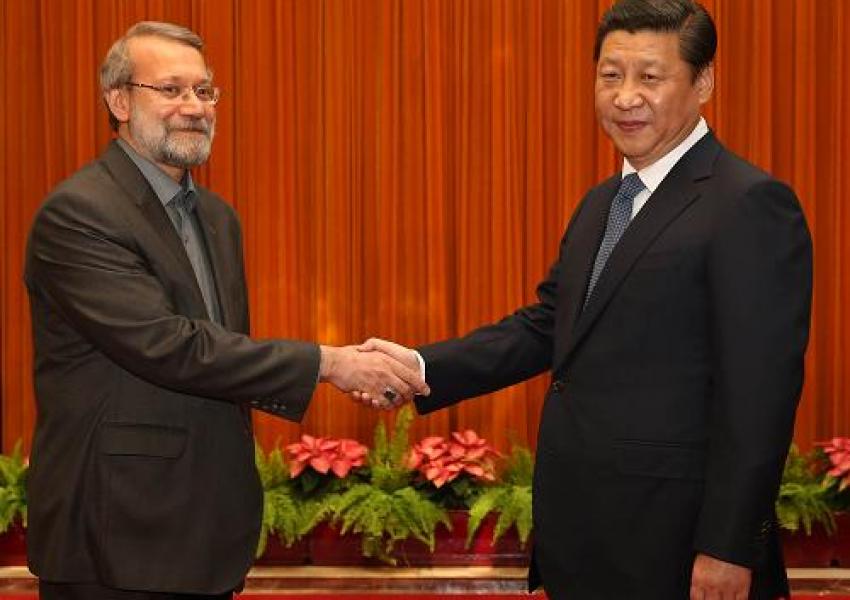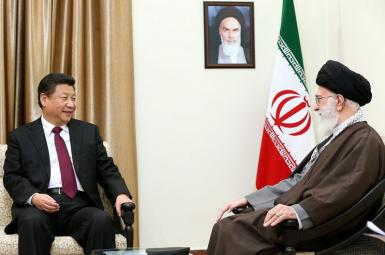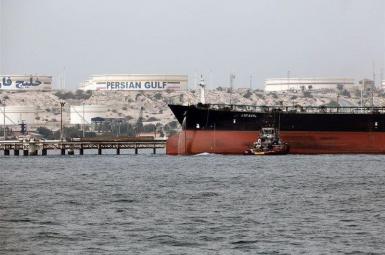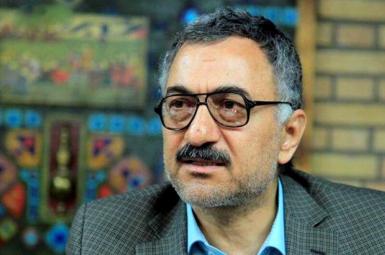
Larijani Appointed To Pursue Iran-China Strategic Cooperation Deal
The Rouhani administration in Iran has officially put former Majles Speaker Ali Larijani in charge of finalizing a controversial 25-year cooperation agreement with China, enthusiastically promoted by Tehran and met with silence by Beijing.
President Hassan Rouhani's Chief of Staff Mahmoud Vaezi told reporters in Tehran October 20 that Larijani was also keen to follow up the contract. Reformist daily Shargh opined on Wednesday October 21, that Larijani's position as an advisor to Supreme Leader Ali Khamenei will convince the Chinese that Iran is serious about the cooperation agreement with China.
However, this could also be a way of bringing Larijani under the spotlight to groom him as Iran's next President.
Larijani was first appointed by Iran's Supreme Leader Ali Khamenei as the liaison with China in February and paid a visit to China in mid-February. At the time he called China "A trustworthy strategic partner" for Iran.
Deprived of trading with the rest of the world as a result of US sanctions imposed on Iran following Washington’s withdrawal from the 2015 Iran nuclear deal, Tehran began trumpeting closer relations with China and Russia, although trade partners in both countries have not been able to do much for Tehran, fearing US secondary sanctions.
So far, the Chinese side has not officially acknowledged that there is a 25-year strategic deal in place, but Iran's Foreign Minister Javad Zarif who initially denied the existence of such a contract, has said in recent months that the idea of a comprehensive cooperation agreement between the two countries was first discussed during a 2016 meeting in Tehran between China's President Xi and Ali Khamenei.
Zarif added in several interviews since August that the 25-year contract is being finalized. A draft agreement leaked to the press in August contained some general terms but did not go into details of what the contract exactly proposed.
Meanwhile, Zarif who accompanied Larijani to Beijing said that Larijani discussed Iran's role in the plans for the new Silk Road , as well as discussing economic and security issues with Chinese officials, hardline Jahan News reported on Tuesday.
Mohammad Javad Jamali Nobandegani, who is a member of the Iranian Parliament for Fasa in Fars Province, told Khabar Online, a media outlet close to Larijani in August that there are rumors about Iran handing over some of its islands to China as part of this contract, but explained that such rumors are baseless.
At the time, reports in Iranian media and particularly on social media alleged that Chinese troops are going to be based in parts of Iran. The ensuing debates about these rumors led to some political developments including the firing of a deputy health minister who got himself involved in a heated debate with China's ambassador in Iran.
Ambassador Chang Hua has been playing a part in other controversies too. On Wednesday he first called the Persian Gulf "Gulf" in a tweet and later on the same day, he deleted the tweet, but screenshots of it are still going around on social media as an evidence of Chinese hypocrisy to serve its interests among Iran's Arab neighbors in the region.
Iran currently believes China and Russia are its only allies. At a United Nations Security Council Meeting on Tuesday while the United States branded Iran as " the single greatest threat to peace and security in the Middle East," Russian Foreign Minister Sergey Lavrov said the situation in the Persian Gulf region remains fragile and could become dangerous and unpredictable again, adding that “if we work together …, we will be able to help the states of the Persian Gulf overcome this difficult historic period and create an effective system of collective security.”
At the same meeting, the Chinese Foreign Minister Wang Yi, suggested “a platform for multilateral dialogue for the Gulf region," starting with incremental progress on energy, shipping, trade and other less sensitive issues
Apart from the Iran-China ties, Larijani's new appointment gives rise once again to talks among Iran watchers abroad and Iranian analysts in the domestic press about Larijani's future role in Iranian politics. Many allege that Rouhani is grooming Larijani as Iran's next president ahead of the June 2021 election.
A major part of Iranian conservatives' propaganda ahead of the election is about rivalry with Larijani. Reformist daily Shargh on the other hand tried on Wednesday to portray Larijani as a prominent international figure, quoting a Tunisian official as praising Larijani's role in the nuclear negotiations and his role as a cultural, security and even scientific figure.
During the past months, most reformist parties in Iran have been advocating the idea of Larijani replacing Rouhani as President in 2021. Whether this is feasible or not depends on many factors including the attestation of the Guardian Council and Khamenei. But the most important factor is Larijani's voters base. In 2005 when he was a presidential candidate, he won just over one million and 700 thousand votes (less than five percent of votes cast). Apart from everything else, the main issue for him to tackle is popularity and electability. At the time being, these appear to be his weakest points.








